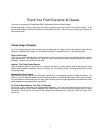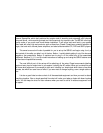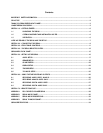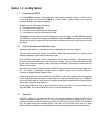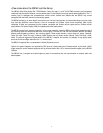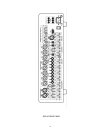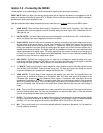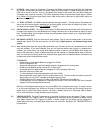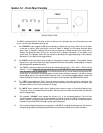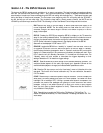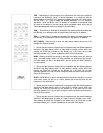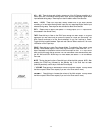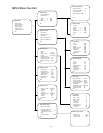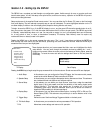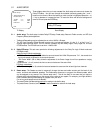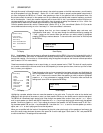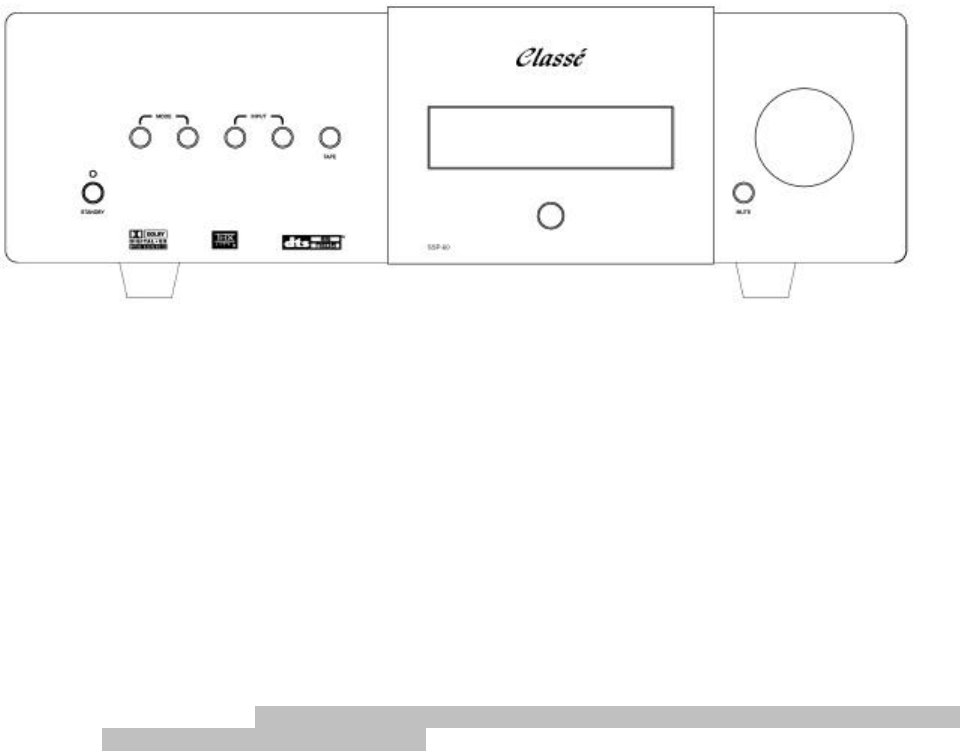
11
Section 3.0 - Front Panel Controls
SSP-60 FRONT VIEW
The SSP-60 operates intuitively. The seven controls on the face of the processor give you all the options you need
to turn it on and use it successfully day after day.
3.1 The “STANDBY” button toggles the SSP-60 from standby to operate and vice versa. There is an on/off switch
on the rear of the unit, which turns the AC on and off. When in “Standby” the LED above the button glows
green, when in “Operate” mode the LED is out and the display is lit. Please note that if the remote zone is
enabled, the display will read “Zone B On” when the unit is in Standby. See section 7.0 for details on the
remote zone. The “Standby” button will also activate or de-activate the triggers depending on their settings.
See section 5.5 for details on the trigger settings.
3.2 The “MODE” buttons are used to scroll through all the available Modes of operation. The available Modes
depend on the type of the audio input signal. Appendix B shows all the available Modes (subject to change)
and indicates which speakers are active.
3.3 The “INPUT” buttons are used to scroll through the available Sources: AV1 – AV6, AUD1 – AUD4, and the
External 7.1 input. Please note that you have to go into the SOURCE SETUP menu to activate the balanced
input. See section 5.3.4 for further details. Once the Sources are set up, you can select a source and the SSP-
60 will begin to automatically process the audio or audio/video information correctly. If you wish to change
the processing style you can use the MODE buttons to scroll to the preferred playback method. Please note
that the availability of certain modes depends on the type of incoming signal. See APPENDIX B for details.
3.4 The “TAPE” button selects the “PLAY” input and sends this signal to the main output for monitoring. The
previously selected Main Source remains as the source and continues to play through the record outputs. (See
the notes in section 6.0 for more information on Taping).
3.5 The “MUTE” button mutes the audio output. Press the button again to return to the previous listening level.
Turning the volume up releases the Mute condition, while turning volume down maintains Mute until the Mute
button is pressed again.
3.6 The unlabeled “VOLUME” knob changes the volume in all of the connected speakers. Turn this knob
counterclockwise to reduce the volume and clockwise to increase it. When the SSP-60 is Muted the volume
can be “reduced” using the Volume control without coming out of Mute, but if the knob is turned clockwise to
increase the volume the SSP-60 will begin playing again immediately.
3.7 The front panel display shows the current operation of the SSP-60, including the selected input, the format of
the signal being played, the selected playback Mode, and the current Volume level (or Mute condition).



